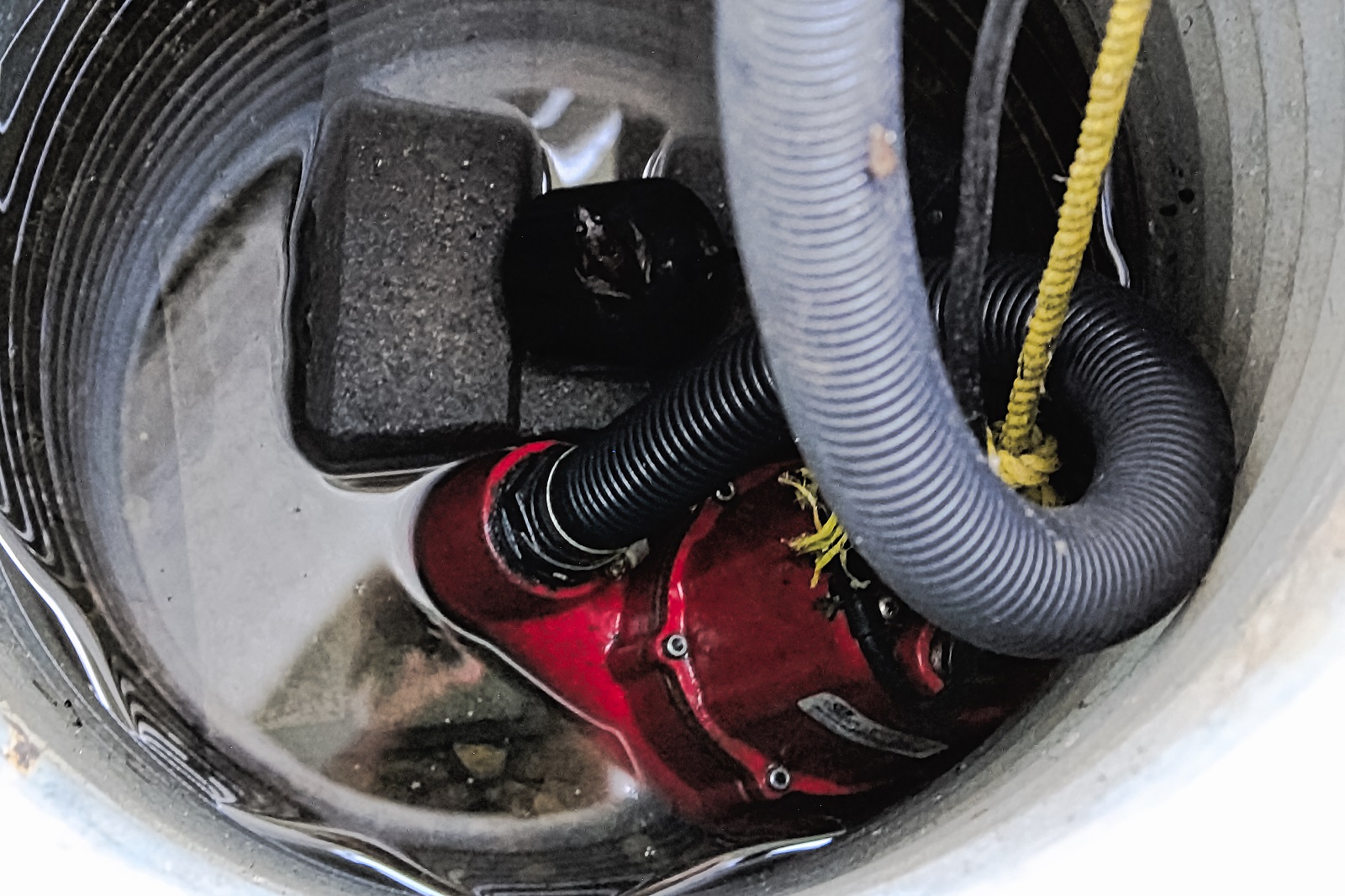Practical Tips for Caring for a Sump Pump
Practical Tips for Caring for a Sump Pump
Blog Article
In this article below you can locate some great information and facts with regards to How To Effectively Clean A Sump Pump.

Sump pumps are vital parts in numerous homes, particularly in locations vulnerable to flooding or too much moisture. They help protect against water damage by efficiently removing excess water from cellars or crawl spaces. However, like any other appliance, sump pumps call for normal upkeep to guarantee they operate effectively when required the most. Cleaning your sump pump is an important part of its maintenance, and recognizing exactly how to do it effectively can save you from expensive fixings and potential catastrophes.
Intro
Keeping a tidy sump pump is essential for its proper functioning and long life. Overlooking this essential job can lead to clogs, breakdowns, and eventually, water damage to your property. Therefore, discovering just how to clean a sump pump is vital for house owners that count on these devices to keep their cellars completely dry and protected.
Indications of a Dirty Sump Pump
Knowing when your sump pump needs cleansing is vital for stopping prospective malfunctions. Some typical signs that suggest an unclean sump pump consist of strange noises throughout procedure, reduced water circulation, and noticeable debris in the pit. If you discover any one of these signs and symptoms, it's important to clean your sump pump quickly to avoid any type of additional issues.
Planning for Cleaning
Prior to you start cleansing your sump pump, it's important to take some safety precautions. Start by shutting off the power to the pump to avoid any type of electrical mishaps. Additionally, put on proper safety gear, such as handwear covers and safety glasses, to protect yourself from dirt, debris, and prospective virus.
Recognizing the Sump Pump
Prior to diving right into the cleaning procedure, it's necessary to have a basic understanding of exactly how a sump pump functions. Normally installed in a pit or basin below the basement flooring, a sump pump includes numerous essential parts, including a pump, a float switch, and a discharge pipe. When water collects in the pit, the float switch triggers the pump, which then pumps the water out with the discharge pipeline, away from the structure's foundation.
Step-by-step Overview to Cleaning a Sump Pump
Shutting down the Power
Begin by detaching the power supply to the sump pump to stop any kind of accidents while cleansing.
Looking For Proper Performance
Prior to re-installing the pump, do a fast examination to make certain that the float button triggers the pump appropriately. Put some water into the sump pit and observe the pump's operation. If every little thing is functioning correctly, you can rebuild the pump and reconnect the power supply.
Eliminating Particles and Dirt
Make use of a container or a scoop to remove any noticeable particles, dust, or debris from the sump pit. Dispose of the particles correctly to stop it from blocking the pump or the discharge pipeline.
Cleaning the Pump and Float Switch Over
Once the pit is clear of particles, thoroughly eliminate the pump from the pit. Examine the pump and the float switch for any indicators of damage or wear. Utilize a soft brush or fabric to cleanse the surfaces and remove any kind of collected gunk.
Flushing the System
After cleaning the pump and float button, flush the sump pit with tidy water to eliminate any kind of continuing to be dirt or sediment. This will certainly aid make certain that the pump runs smoothly and effectively.
Maintenance Tips to Keep Your Sump Pump Clean
Along with regular cleansing, there are a number of maintenance suggestions you can follow to maintain your sump pump in optimum condition:
Verdict
Cleansing your sump pump is a critical aspect of its upkeep and ensures that it runs effectively when you need it the most. By following the actions outlined in this overview and integrating normal upkeep into your regimen, you can expand the life-span of your sump pump and protect your home from water damages.
6 STEPS ON HOW TO CLEAN A SUMP PUMP PROPERLY
UNDERSTANDING SUMP PUMPS
Your sump pump plays a crucial role in protecting your home by managing and removing excess water. It primarily functions as a “shield”, guarding your basement against the damaging effects of water accumulation. The pump is housed in a sump pit in the lowest part of your basement, and its job is to pump out any water that collects there.
During heavy rainfalls or when snow melts rapidly, water can infiltrate your basement, posing potential risks like flooding, structural damage, and harmful mold growth. Here, the sump pump springs into action, pumping out the intruding water and directing it away from your home.
SAFETY FIRST
Before cleaning, remember to prioritize safety. Disconnect the sump pump from the power source to prevent any accidental electric shocks. Also, wear sturdy gloves to protect your hands from any sharp or dirty components within the pump.
REMOVE THE SUMP PUMP
After ensuring your safety, the next step is to remove the sump pump from its pit. Doing this might require careful maneuvering as you don’t want to damage any pump components. Once removed, clean the sump pit to remove any accumulated debris or sludge.
INSPECT THE PUMP
Inspect the pump for any visible signs of wear or damage. Check the power cord, float switch, and impeller housing. If any components look worn out or damaged, consider replacing them to ensure optimal performance.
CLEAN THE PUMP
Thoroughly clean the pump with warm, soapy water. Make sure to rid it of any dirt, gravel, or other debris that might impede its performance. You can use a toothbrush to clean the small, hard-to-reach parts of the pump.
REINSTALL THE SUMP PUMP
Reinstall the pump into the sump pit Make sure it’s positioned correctly to remove the water effectively Once it’s back in place, reconnect it to the power source TEST THE PUMP
Finally, pour some water into the pit to ensure the pump works correctly. It should start automatically and begin pumping out the water; if it doesn’t, check the power source and the positioning of the pump.
Remember, while cleaning your sump pump is an essential part of home maintenance, hiring a professional plumber for a thorough inspection and cleaning at least once a year is also important. This will ensure that your pump is in optimal condition, ready to protect your home from potential water damage.
BEST PRACTICES FOR CLEANING SUMP PUMP DISCHARGE PIPES
Regular Inspection: Regularly inspect your discharge pipes, especially during heavy rainfall or snowmelt periods. Look for any signs of blockage or damage. Early detection of problems can prevent serious issues down the line. Periodic Cleaning: Over time, sediment and debris can accumulate in the discharge pipes, impeding the flow of water. Regular cleaning helps keep the pipes clear and functioning efficiently. You can use a high-pressure water jet to effectively clean the pipes. Insulation During Winter: In colder climates, discharge pipes can freeze, blocking the outflow of water. Protect your discharge pipes from freezing temperatures by insulating them with foam pipe insulation. This will ensure the sump pump can continue to discharge water even in freezing conditions. Proper Positioning: The discharge pipe should be positioned to direct water away from your home’s foundation. Improper positioning can lead to water seeping back into the basement. Ensure the pipe is long enough and angled correctly. Installation of a Check Valve: A check valve prevents water from flowing back into your sump pit after the pump has pushed it out. Installing a check valve helps maintain the efficiency of your sump pump and reduces the risk of flooding. Minimize Pipe Turns: Every curve or turn in the discharge pipe can decrease the efficiency of water flow. By minimizing turns and bends in your discharge pipe, you can increase the efficiency of your sump pump. https://www.fullspeedplumbing.com/how-to-clean-a-sump-pump-properly9999/

I hope you enjoyed reading our topic on How To Effectively Clean A Sump Pump. Thank you for taking time to read through our posting. Sharing is caring. You just don't know, you could be doing someone a favor. Many thanks for going through it.
Call Today Report this page